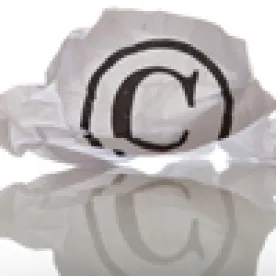OVERVIEW
On March 4, 2019, the US Supreme Court issued a unanimous decision authored by Justice Kavanaugh in Rimini Street, Inc. v. Oracle USA, Inc., finding that the term “full costs” in 17 USC § 505 of the Copyright Act has no special, expansive meaning but rather is limited to the costs specified in the general costs statute codified at 28 USC §§ 1821 and 1920.
IN DEPTH
On March 4, 2019, the US Supreme Court issued a unanimous decision authored by Justice Kavanaugh in Rimini Street, Inc. v. Oracle USA, Inc., finding that the term “full costs” in 17 USC § 505 of the Copyright Act has no special, expansive meaning, but rather is limited to the costs specified in the general costs statute codified at 28 USC §§ 1821 and 1920. As Kavanaugh explained, the addition of the adjective “full” to the term “costs” (in the Copyright Act) is not enough to conclude that Congress intended additional costs, beyond those set forth in the general cost statute.
IN DEPTH
The US Supreme Court reversed in part a decision of the US Court of Appeals for the Ninth Circuit, finding that a federal court’s discretion to award “full costs” under the Copyright Act is limited by the categories specified in the general costs statute; and does not include expenses such as e-discovery, jury consultants and experts. Rimini Street Inc. v. Oracle USA Inc., Case No.1625 (US, March 4. 2001) (Kavanaugh, Justice)
Case Background
Oracle develops and licenses software programs that manage data and operations for businesses and nonprofit organizations, and also offers software maintenance services for its customers. Rimini Street sells third-party software maintenance services to Oracle customers thereby competing with Oracle’s software maintenance services. In doing so, Rimini competes with Oracle’s direct maintenance services. To obtain Oracle’s software, Rimini used automated downloading tools and copied the software from Oracle’s website.
Oracle sued Rimini for copyright infringement as well as claims under the California Comprehensive Data Access and Fraud Act and the Nevada Computer Crimes Law. A jury found against Rimini on the claims and awarded Oracle $124 million in damages, including $12.8 million for litigation expenses such as expert witnesses, e-discovery and jury consulting. About $36 million of the award was attributable to damages for copyright infringement. Rimini appealed to the Ninth Circuit.
Addressing the issue of copyright infringement, the Ninth Circuit affirmed the district court’s finding that Rimini infringed Oracle’s copyright by copying its software. The court rejected Rimini’s argument that the licenses held by Oracle licensees gave Rimini the right to copy the software under the license of one customer for work done for other customers. The court pointed out that licensees may hire a third party, such as Rimini, to maintain their software for them, but nothing in the licenses permits licensees to grant a non-party to the license a general right to copy proprietary software.
Based on its reversal of the award on the non-copyright claims, the Ninth Circuit reduced the damage award by approximately $50 million, but determined the $12.8 million for additional expenses was still appropriate because § 505 of the Copyright Act permits the award of “full costs,” a term the Ninth Circuit found was not confined to the six categories of allowable costs identified in 28 USC §§ 1821 & 1920.
Petition for Certiorari and Opinion
The question addressed by the Supreme Court was whether the statutory language “full costs,” as used in the Copyright Act, authorizes a court to award litigation expenses beyond the six categories of “costs” specified by Congress in the general costs statute. The Copyright Act provides that a district court, in a copyright case, may allow the recovery of “full costs” by or against any party other than the United States or an officer thereof. In its decision, the Supreme Court concluded that the term “full” does not expand the recoverable costs beyond those specified in the general costs statute, §§1821 and 1920.
Under the general costs statute, Congress specified six categories of litigation expenses that a federal court may award as costs as follows: (1) fees of the clerk and marshal; (2) fees for printed or electronically recorded transcripts necessarily obtained for use in the case; (3) fees and disbursements for printing and witnesses; (4) fees for exemplification and the costs of making copies of any materials where the copies are necessarily obtained for use in the case; (5) docket fees under section 1923 of this title; (6) compensation of court appointed experts, compensation of interpreters, and salaries, fees, expenses, and costs of special interpretation services under section 1828. 28 USC §1920. In addition, §1821 provides reimbursement rates for witnesses’ per diem and mileage expenses.
The Supreme Court, citing 25 years of precedents, explained that its cases “establish a clear rule” that “[a] statute awarding ‘costs’ will not be construed as authorizing an award of litigation expenses beyond the six categories listed in §§1821 and 1920, absent an explicit statutory instruction to that effect.”
Contrary to arguments by Oracle, and the decision by the district court as affirmed by the Ninth Circuit, the Supreme Court clarified that expansion of the available costs pursuant to §§ 1821 and 1920 occurs only upon explicit statutory authority for such expansion. The court explained that the term “full” used before “costs” merely serves to mean the complete measure of costs available pursuant to the appropriate statutes and does not expand the available costs under § 505. The Supreme Court pointed out that interpreting “full costs” to mean more than the costs identified in the relevant statutory would render redundant language in § 505 that provides for an award of “reasonable attorney’s fee to the prevailing party as part of the costs.” 17 USC § 505. If “full costs” was intended to cover all of a party’s litigation expenses as Oracle argues, this sentence would be unnecessary.
The Supreme Court further rejected Oracle’s argument that English copyright statutes awarding “full costs” allowed the transfer of all expenses of litigation, beyond what was specified in any costs schedule, and Congress necessarily imported that meaning of the term “full costs” into the Copyright Act in 1831. The Court was not persuaded, stating that “courts should not undertake extensive historical excavation to determine the meaning of costs statutes.”
Thus, the Court reversed the district court’s award of $12.8 million in litigation expenses, remanding the case for re-consideration by the district court in light of the proper interpretation of the costs available pursuant to § 505.
Practice Note
Parties seeking damages should carefully read the applicable statutory language to understand the limits of their potential recovery, recognizing the default position of the court to limit recoverable costs to §§ 1821 and 1920 absent explicit statutory authority to the contrary





 />i
/>i

